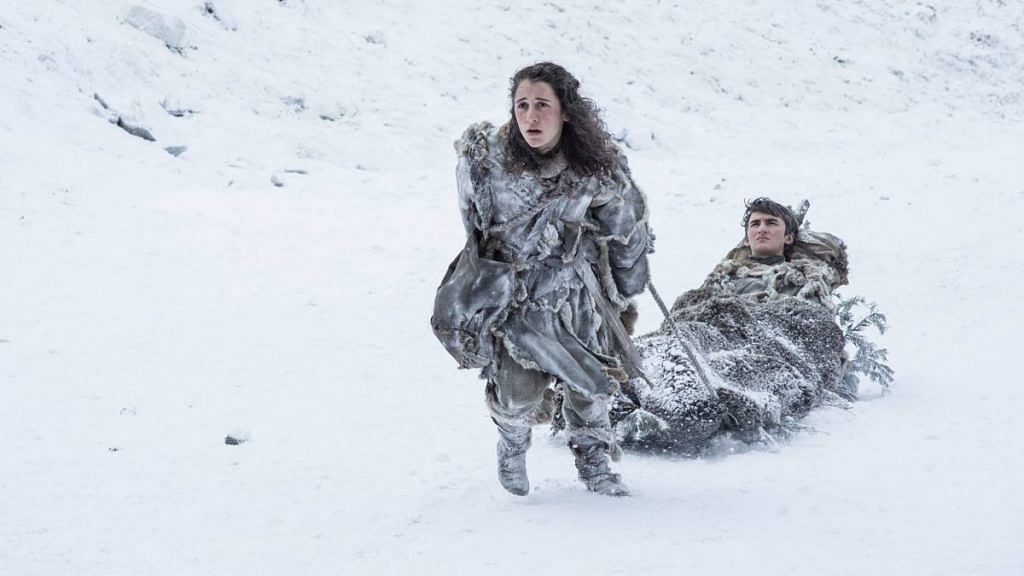Eight years, 73 episodes and countless killings later, HBO’s mega-saga Game of Thrones finally bid adieu Monday. And while the show has been discussed from most angles – from climate change to racial discrimination – one angle not dissected enough is that of characters with disabilities.
Spoiler alert: The show ends with two persons with disabilities occupying two of the most important positions in Westeros (the fictional continent in which Game of Thrones is set).
Bran Stark (played by Isaac Hempstead Wright) or ‘Bran the Broken’, a wheelchair user, becomes the king of all six kingdoms. Bran also has magical powers including the ability to receive prophetic visions, witnessing and influencing the past and being a ‘warg’ – someone who can get into the consciousness of any animal, see through its eyes and control its body. He is the custodian of memories and history of mankind. And why is he eventually elected king? Not on merit, of course, but because he has an inspiring story, because he is the keeper of memory, because he has no interest in ruling and because he can’t father children. He is almost inhuman in his lack of needs and desires beyond the physiological. (Just because he happens to be in a wheelchair?)
Also read: Did the last season of Game of Thrones let down its legions of fans?
Bran ticks all the stereotypes persons with disabilities fight against. His dialogues are cringe-worthy, to say the least. For example, just before a character dies, he says “Theon, you’re a good man. Thank you.” Or, when he decides to save another man, he says, “You wouldn’t be able to help us in this fight if I let them murder you first.”
If there was one man the Indian government saw before renaming persons with disabilities as ‘Divyang’ (Divine) it perhaps was Bran Stark. After all, he can go into the past, warg into animals, is Mr ‘know it all’ but has no wants, no desires and no aspirations.
If Bran stinks of ableism, Tyrion Lannister radiates empowerment.
It is surprising that the same George R.R. Martin, David Benioff, D. B. Weiss who created Bran also developed the dwarf character Tyrion Lannister (played by Peter Dinklage). Often called the “cleverest man alive”, Tyrion is someone who knows his restrictions and has overcome them through hard work, humour and cunning. However, his greatest ability is understanding people’s true characteristics. As he tells Jon Snow, in their first meeting, “Never forget what you are, the rest of the world will not. Wear it like armour and it can never be used to hurt you.”
So, what if he isn’t a great swordsman? Tyrion knows what’s the right thing to do, what’s right for the people. He often gets into trouble in the process and almost loses his life, only to be saved by his words. That doesn’t stop him from doing what’s right, whether it’s turning on his sister Cersei, confronting her son and tyrant king Joffrey, killing his own father with a crossbow and joining his family’s nemesis, the ‘breaker of chains’, Daenerys as her Hand. And he doesn’t hesitate to turn on her either when she shows autocratic tendencies.
If Bran got the worst dialogues in the show, Tyrion got the best. Tyrion lives life to the fullest with guile, sense of humour and frequently outwits others. He’s comfortable in his skin, often referring to himself as the ‘imp’ or acknowledging the fact that he was treated as a ‘monster’ as a child. He never really allows you to pity him.
Also read: The secrets of Game of Thrones’ Bran Stark & Tyrion Lannister were hiding in plain sight
So, how should we judge Game of Thrones from the lens of disability? In my opinion, Bran is the person the world perceives us, the disabled, to be and Tyrion is the person we aspire to be.
With the unparalleled success this show has had though, who am I to judge? After all, as Tyrion Lannister said, “It’s easy to confuse ‘what is’ with ‘what ought to be,’ especially when ‘what is’ has worked out in your favour.”
Nipun Malhotra is a wheelchair user, alas with no magical powers. He’s the CEO, Nipman Foundation and Founder, Wheels For Life (www.wheelsforlife.in). He can be followed on twitter @nipunmalhotra. Views are personal.
